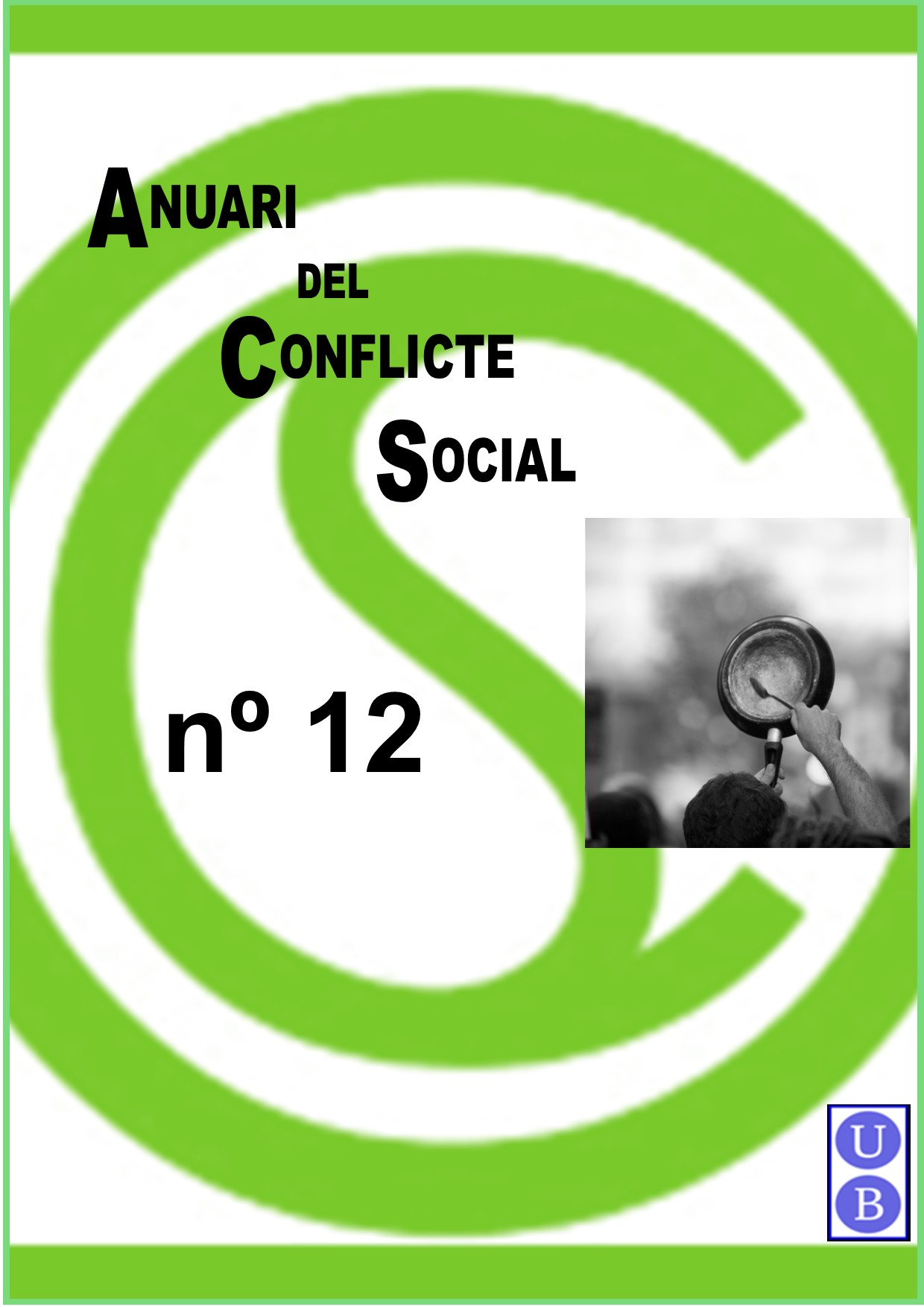Feminists and 8M-2020: An Identity Study of the Conflict
DOI:
https://doi.org/10.1344/ACS.2021.12.11Keywords:
Identidad política, Feminismo, Organización femenina, Mujer en política, 8MAbstract
Faced with the growing political identification of women with feminism, there have been numerous critiques from the Spanish socio-political scene, especially in the year of 2020 in the face of the controversy over the coronavirus and 8M demonstrations (International Women’s Day). This research note aims to analyse the depth of this identity change, to observe the socio-demographic and political characteristics that define this change, as well as to examine the valuation of 8M. This study has been carried out by means of descriptive and statistical analyses using CIS microdata. The main results reveal an increase in feminist identity, as well as an important polarisation of feminists on their voting choices, also, the valuation of 8M and solutions to gender inequality.
References
Augustín, M. (2003). Feminismo: Identidad personal y lucha colectiva (Análisis del movimiento feminista español en los años 1975 a 1985). Universidad de Granada.
Bales, R. y Parsons, T. (2013[1956]). Family: Socialization and Interaction Process. Routledge.
Beck, U. (2002). La sociedad del riesgo global. Siglo Veintiuno.
Benford, R. y Snow, A. (2000). Framing Processes and Social Movements: An Overview and Assessment. Annual Review of Sociology, 26, 611-639. https://doi/abs/10.1146/annurev.soc.26.1.611
Bernstein, M. (2005). Identity politics. Annual Review of Sociology, 31, 47-74. https://doi.org/10.1146/annurev.soc.29.010202.100054
Campos, A. y Méndez, L. (1993). Teoría feminista: Identidad, género y política. Argitarapen zerbitzua.
Connell, R. W. (1984). Making the difference: schools, families and social division. Routledge.
Collins, P. H. (1998). Fighting Words: Black Women and the Search for Justice. University of Minnesota Press.
Engels, F. (2017[1884]). Origen de la familia, de la propiedad privada y del Estado. Akal.
Flesher, C. (2015). El sentido común, lo “político”, el feminismo y el 15M Encrucijadas. Revista Crítica de Ciencias Sociales, 9(r0901).
Foucault, M. (1972). La arqueología del saber. Siglo Veintiuno.
Freud, S. (1991[1921]). Group Psychology and the Analysis of the Ego. Penguin.
Galdón, C. (2018). Cosmovisiones feministas en clave generacional. Del movimiento 15M a la Huelga Feminista del 8M. Encrucijadas. Revista Crítica de Ciencias Sociales, 16(v1601).
Giddens, A. (1998). Modernidad e identidad del yo. Península.
Guerra, M. J. (1998). Mujer, identidad y reconocimiento. Habermas y la crítica feminista. Centro de Estudios de la Mujer.
Husserl, E. [1931] (1979). Meditaciones cartesianas. Paulinas.
Inglehart, R. (1999). Modernización y posmodernización: el cambio cultural, económico y político en 43 sociedades. CIS.
Juárez J., Calvo, P. y Sánchez, I. E. (2021). Políticas de incomunicación ante la COVID-19 en España: Estrategias de manipulación para la culpabilización de las manifestaciones del 8M. Historia de la comunicación social, 26, 31-40. https://dx.doi.org/10.5209/hics.74239
McCall, L. (2001). Complex Inequality: Gender, Class, and Race in the New Economy. Routledge.
Melucci, A. (1994). ¿Qué hay de nuevo en los nuevos movimientos sociales? En E. Laraña, E. y J. Gusfield (Eds.), Los nuevos movimientos sociales. De la ideología a la identidad (pp. 119-150). CIS.
Olson, M. (1992). La lógica de la acción colectiva: bienes públicos y la teoría de grupos. Limusa.
Poulain de la Barre, F. (1996). Sobre la igualdad de los sexos. Figuras del Otro. Escuela Libre.
Puche, T. (2012). El feminismo más crítico de los años veinte en España: los peligrosos artículos de Magda Donato. Sociocriticism, 27(1 y 2), 127-146.
Seco, M. M. (2007). Las mujeres de la República y la Guerra Civil desde la perspectiva democrática actual. Pasado y memoria. Revista de Historia Contemporánea, 6, 73-93. http://dx.doi.org/10.14198/PASADO2007.6.05
Smelser, N (1989[1962]). Teoría del comportamiento colectivo. Fondo de Cultura Económica.
Tarrow, S. (1997). El poder en movimiento. Alianza.
Tejerina, B. (1998). Los movimientos sociales y la acción colectiva. De la producción simbólica al cambio de valores. En P. Ibarra y B. Tejerina (Eds.), Los movimientos sociales. Transformaciones políticas y cambio cultural (pp. 111-138). Trotta.
Tilly, C. Lesley, J. y Wood, L. (2010). Los movimientos sociales, 1678-2008. Crítica.
Wittgenstein, L. (2017[1953]). Investigaciones filosóficas. Trotta.
Wollstonecraf, M. (2000). Vindicación de los derechos de la mujer. Cátedra.
Downloads
Published
How to Cite
Issue
Section
License
Copyright (c) 2021 Raquel Vidal Ruiz

This work is licensed under a Creative Commons Attribution 4.0 International License.
AUTHORS RETAIN COPYRIGHT. CREATIVE COMMONS
The authors who publish in this journal agree to the following terms:
- The authors retain the copyright and grant the journal the right of first publication of the work, which will be disseminated following the Creative Commons Attribution license.
- Authors are free to establish additional independent contractual agreements for the non-exclusive distribution of the version of the work published in the journal (such as publication in an institutional or thematic repository, their personal website or a book), provided have your initial publication in this journal recognized.
- Texts will be published under a Creative Commons Attribution License that allows others to share the work, provided they include an acknowledgement of the work’s authorship, its initial publication in this journal and the terms of the license.
- Self-archiving of pre-print and post-print versions is allowed.
Privacy statement
The email addresses and names entered in this publication will be used exclusively for the purposes declared and will not be used for any other urposes or made available to third parties.







